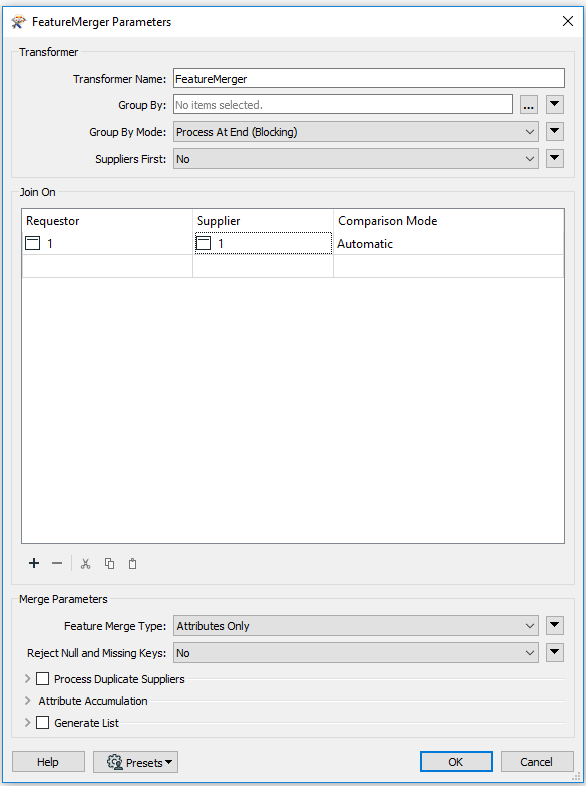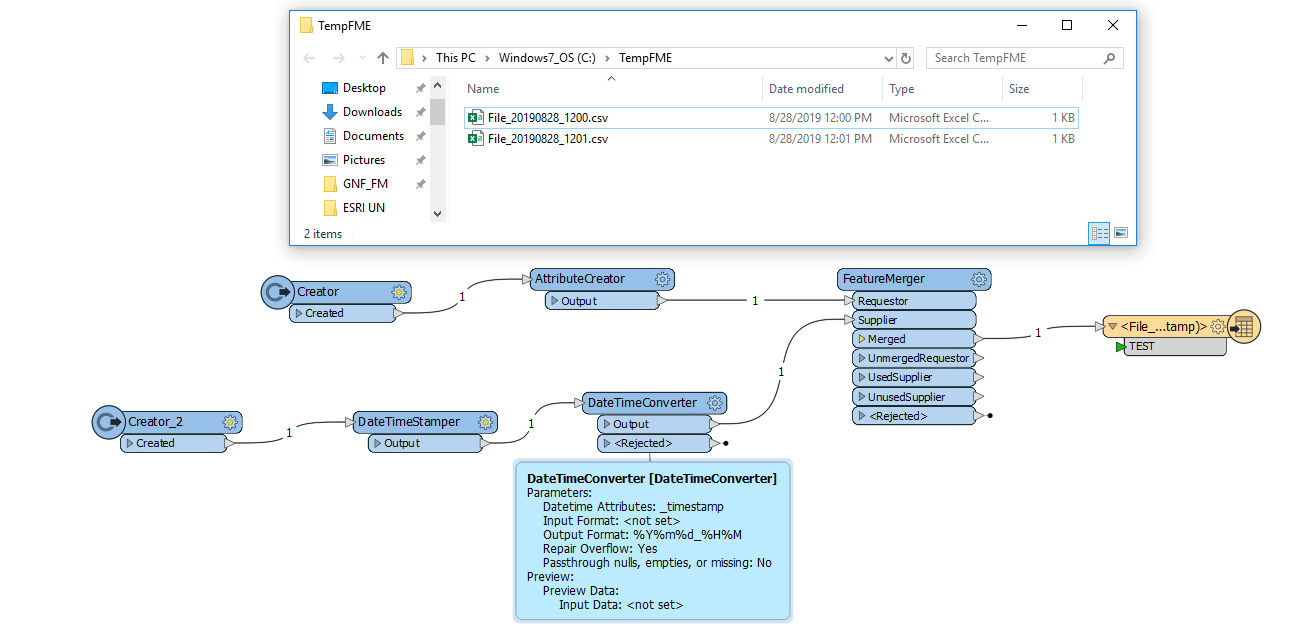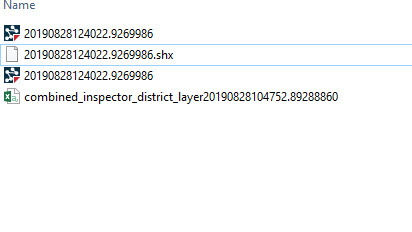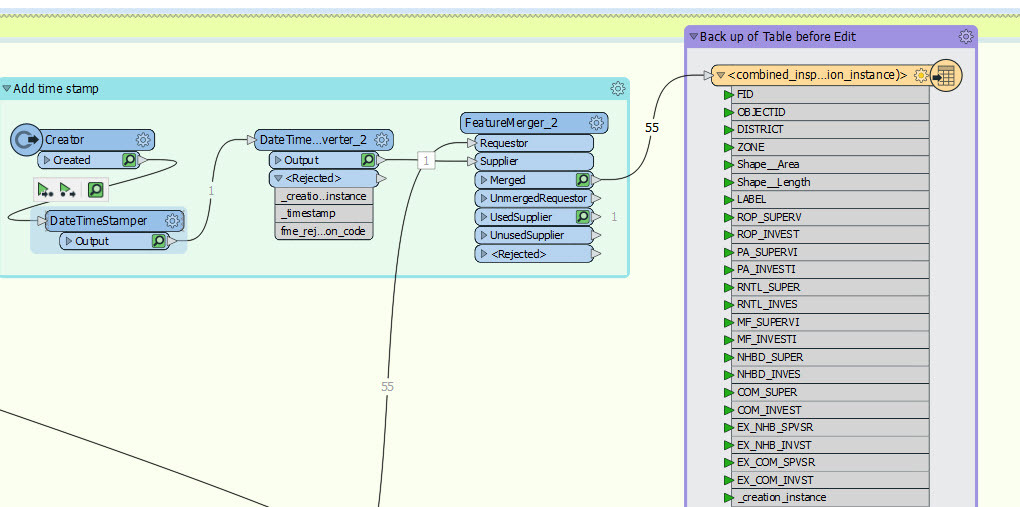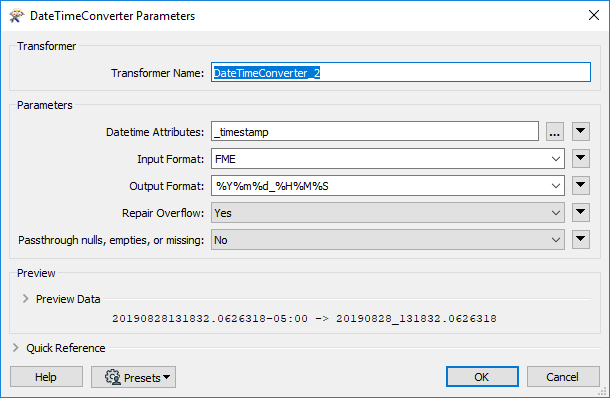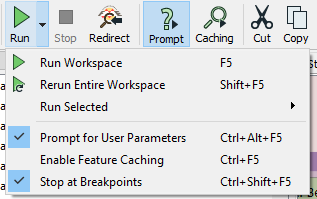I am attempting to write to CSV file where the filename includes date/timestamp. My situation is the same as the question here: https://knowledge.safe.com/questions/35824/write-csv-file-where-filename-includes-datetimesta.html. I've tried adding the timestamp to the name but it produces a CSV for each row of the original table. I tried a parallel Creator>DateTimeStamper> but it generates two CSVs. I tried using a FeatureMerger but I'm confused as to what to join on; My options are to join on _timestamp and a column from the source data, which don't match. Should I ask a new question for this particular instance of the problem or try posting on aforementioned thread?
Solved
Write to csv with timestamp
Best answer by erik_jan
Join unconditionally on 1 = 1, so all features will get the timestamp created after the Creator transformer.
Reply
Rich Text Editor, editor1
Editor toolbars
Press ALT 0 for help
Enter your E-mail address. We'll send you an e-mail with instructions to reset your password.




